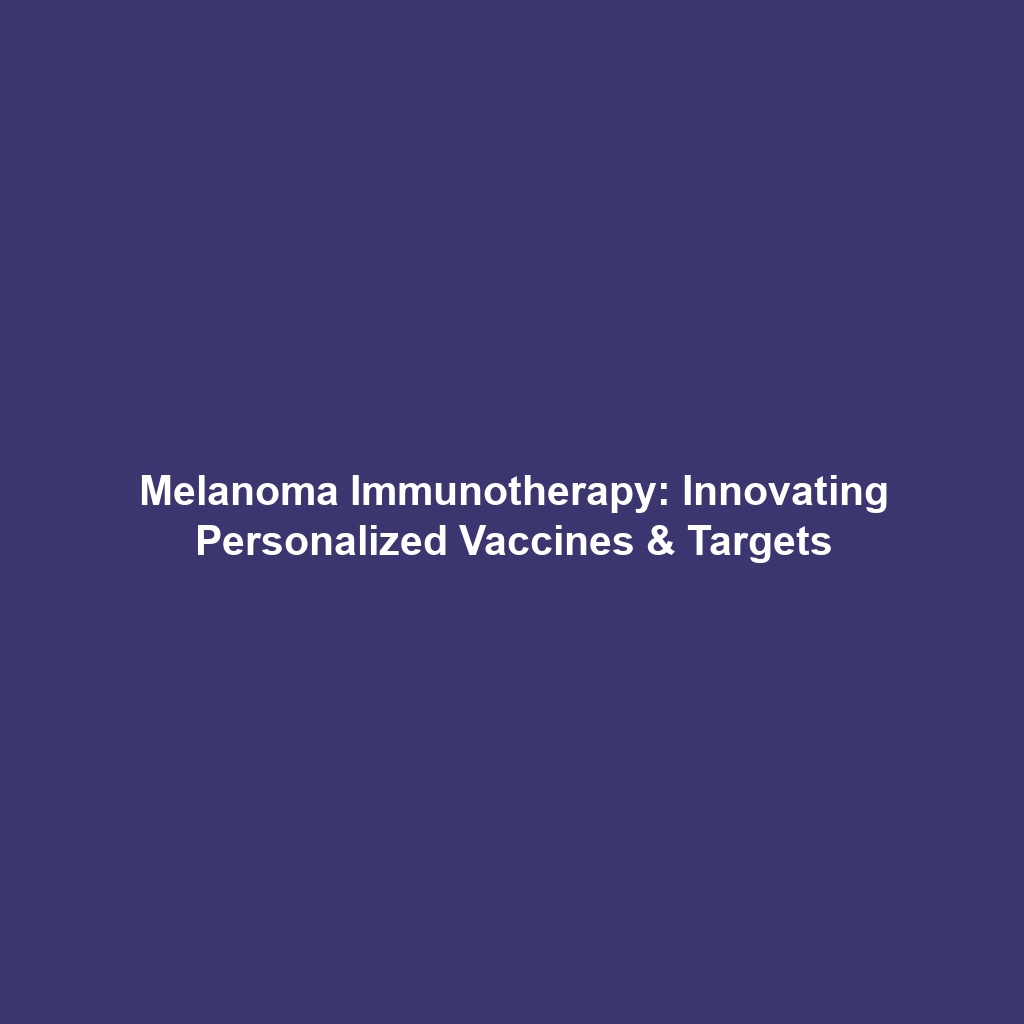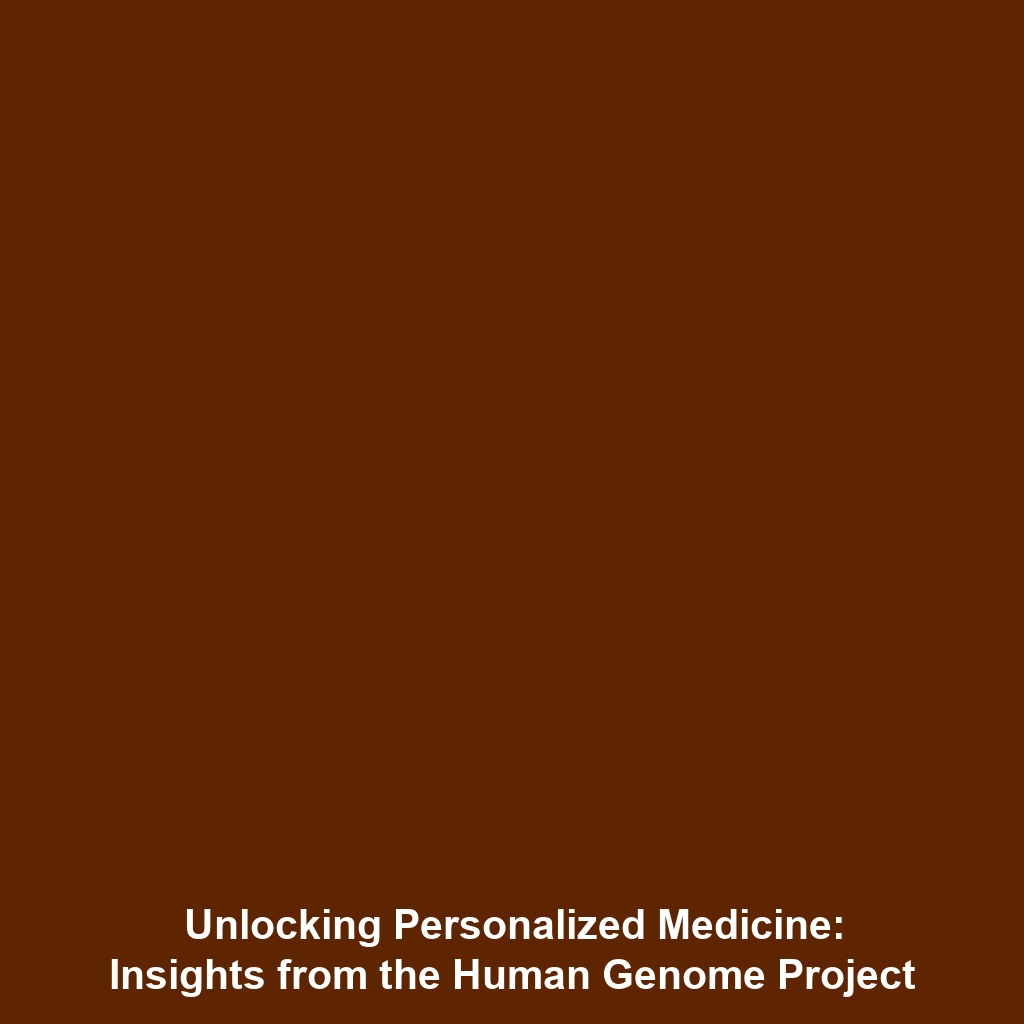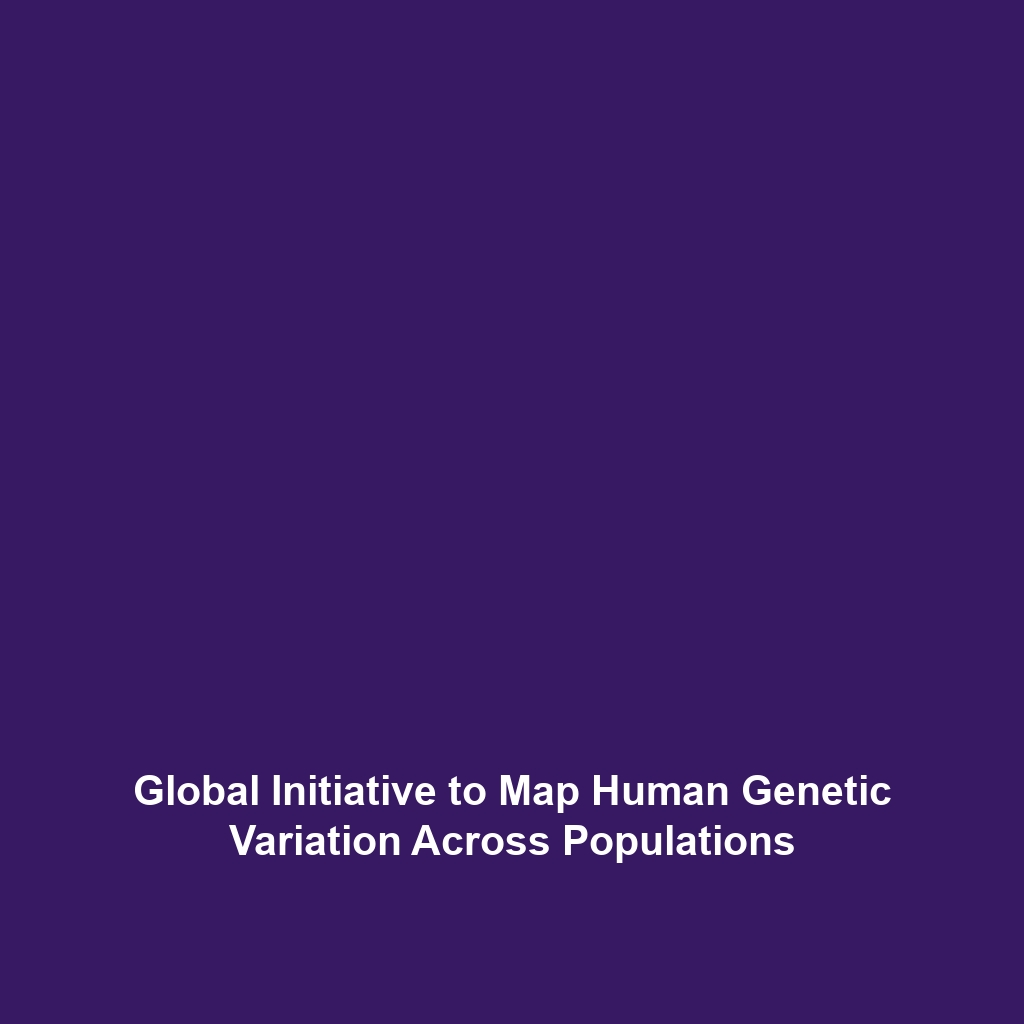Current Research in Melanoma Immunotherapy: Exploring Personalized Vaccines and Novel Immune Targets
Introduction
Current research in melanoma immunotherapy has made significant strides in enhancing patient treatment through innovative approaches such as personalized vaccines and novel immune targets. Melanoma, a form of skin cancer, poses unique challenges due to its aggressive nature and ability to evade the immune system. The focus on tailored therapies presents promising avenues for improving patient outcomes, defining a transformative era in the broader context of immunotherapy and cancer treatment. Understanding these advancements not only sheds light on their medical significance but also highlights their pivotal role in reshaping cancer therapy.
Key Concepts
Understanding Melanoma and Immunotherapy
Melanoma arises from the malignant transformation of melanocytes, and its treatment has traditionally involved surgical intervention, chemotherapy, and radiation. However, immunotherapy has emerged as a revolutionary approach, harnessing the body’s immune system to target and eliminate cancer cells. Key concepts in melanoma immunotherapy include:
- Personalized Vaccines: These are designed to encourage a specific immune response against melanoma cells that express unique antigens.
- Immune Checkpoint Inhibitors: These drugs block proteins that inhibit immune responses, thereby enhancing the body’s ability to fight cancer.
- Neoantigens: These are novel antigens formed due to mutations in tumors which can be targeted by personalized vaccines.
Applications and Real-World Uses
The applications of current research in melanoma immunotherapy are becoming increasingly apparent as new technologies emerge. How current research in melanoma immunotherapy is used in cancer treatment involves several practical implementations:
- Clinical Trials: Many new therapies are tested in clinical trials, paving the way for innovative treatments based on genetic profiling of tumors.
- Combination Therapies: Using personalized vaccines alongside immunotherapy agents like PD-1 inhibitors enhances the overall efficacy of treatment.
- Patient-Derived Models: Research increasingly uses patient-derived xenograft models for preclinical testing of these personalized therapies.
Current Challenges
Despite its promising potential, there are challenges of current research in melanoma immunotherapy that need to be addressed:
- High variability in patient responses to immunotherapy due to genetic differences.
- Limited understanding of the tumor microenvironment’s role in immune evasion.
- The cost and complexity of developing personalized vaccines.
- Access to novel therapies and patients’ eligibility for trials.
Future Research and Innovations
As research evolves, the future of melanoma immunotherapy looks promising. Upcoming innovations include:
- Next-Generation Sequencing: Facilitating deeper insights into individual tumor genetics could revolutionize personalized treatment.
- Adjuvants: Exploring the use of adjuvants to enhance the immune response to vaccines.
- Biomarker Identification: Identifying biomarkers for better patient stratification in clinical trials.
Conclusion
In conclusion, current research in melanoma immunotherapy is paving the way for significant advancements in personalized medicine and cancer treatment. With continued investigations into personalized vaccines and novel immune targets, there is an optimistic outlook for enhancing patient outcomes. For those interested in learning more, consider exploring related topics on innovative cancer therapies or advancements in immunotherapy.






